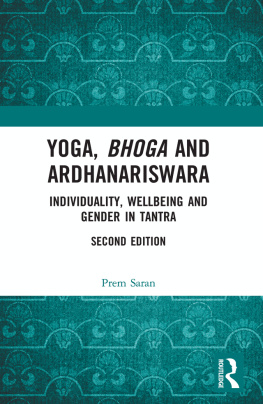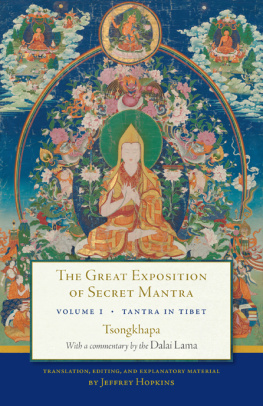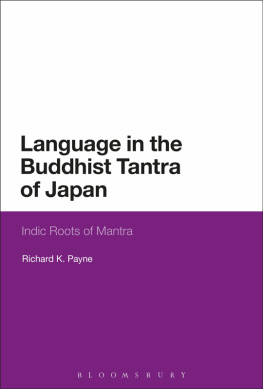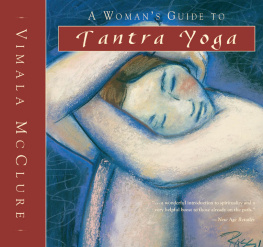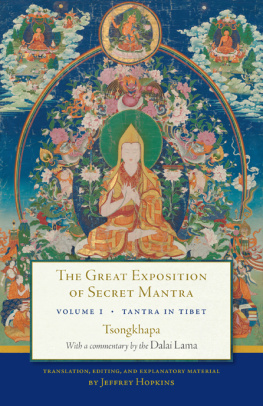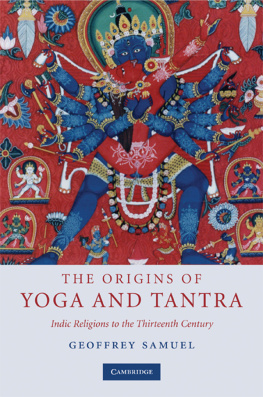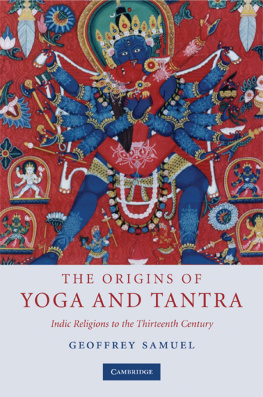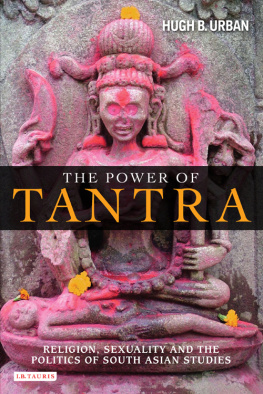Yoga, Bhoga and Ardhanariswara
This book offers a socialscientific interpretation of the Hindu and Buddhist traditions of Tantra dating back 15 centuries. It is a self-reflexive study approached with an insiders empathy and the perspective of an Indologist, anthropologist, mystic and practitioner of the cult.
The work includes a discussion of non-modern Indic themes: mandala as a trope and its manifestations in South Asian regions such as Nepal; yoga and Indic individuality; the concept of bhoga ; disciplined wellbeing; gender; and Indic axiology. Using personal praxis to inform his research, the author examines three core themes within Tantraa holonic/ mandalic individuality that conduces to mystical experience; a positive valorisation of pleasure and play; and cultural attitudes of gender-mutuality and complementarity, as neatly encapsulated in the icon of Shiva as Ardhanariswara. This analysis, as captured by the Tantric mandalas of deities in intimate union, leads to his compelling metathesis that Tantra serves as a permanent counterculture within the Indic civilisation.
This second edition, with a new Afterword, will greatly interest those in anthropology, South Asian studies, religious studies, gender studies, psychology and philosophy, as well as the general reader.
Prem Saran is a former member of the Indian Administrative Service (19782012) and served in Assam. In 1981 he was initiated into a traditional Tantric cult that his mentor, the Austrian-American scholar Agehananda Bharati, was also initiated into. He has researched Hindu and Buddhist Tantric traditions of South Asia at the Universities of Pennsylvania and of California at Santa Barbara. His MA thesis at the University of Pennsylvania resulted in the well-received monograph, Tantra: Hedonism in Indian Culture (1994). This book is based on his doctoral fieldwork in the traditional Indic ambience of the Kathmandu Valley towns.
In this wonderfully imaginative and ludic study, Prem Saran prescribes Tantra as a somaesthetic tonic for a disenchanted world. Read it, and you will wake up re-enchanted.
David Gordon White , author of Sinister Yogis and Kiss of the Yogini: Tantric Sex in its South Asian Contexts
While there are many poor and misleading books written about Tantra, Prem Sarans is by far one of the best and most reliable. Saran combines the personal, first-hand experience of a practising insider with the scholarship and erudition of a trained academic. His book is not only a masterful study of Tantric symbolism and ritual, but it makes a powerful argument about the key role that Tantra has played in South Asian history and culture.
Hugh B. Urban , author of Tantra: Sex, Secrecy, Politics and Power in the Study of Religion and The Power of Tantra
Saran presents here a unique and precious offering: a work on T antra that is at once personal and erudite, private and scholarly; and encompassing Tantras Indic past, present and future as a countercultural ethos and practice. Indeed, his book adds a balancing perspective on Tantra that avoids both the sensational hedonism of pop-culture appropriations and the puritanism of religious and academic or thodo xies.
Patricia Dold , Associate Professor of Religious Studies, Memorial University of Newfoundland, Canada
Prem Sarans beautiful book is at once a historical and theological description, a theoretical analysis, and a spiritual transmission of a particular global vision of Tantra. Tantra here becomes a gift to the world capable of re-enchanting a digitally exhausted modernity, a ritual performance of divine erotic play aimed at aesthetic nondual bliss, and an erotic counterculture and esoteric anatomy that, in different but related forms, has flourished throughout Asia (and now Europe and the Americas) for at least 15 centuries. There are no borders and boundaries here. There are only bodies, all alike, all different, all portals of mystical energies and states of cosmic consciousness we have only begun to fathom and understand.
Jeffrey J. Kripal , author of Secret Body: Erotic and Esoteric Currents in the History of Religions
Yoga, Bhoga and Ardhanariswara
Individuality, Wellbeing and Gender in Tantra
Second Edition
With A New Afterword
Prem Saran
Second edition published 2018
by Routledge
2 Park Square, Milton Park, Abingdon, Oxon OX14 4RN
and by Routledge
711 Third Avenue, New York, NY 10017
Routledge is an imprint of the Taylor & Francis Group, an informa business
2008, 2018 Prem Saran
The right of Prem Saran to be identified as author of this work has been asserted by him in accordance with sections 77 and 78 of the Copyright, Designs and Patents Act 1988.
All rights reserved. No part of this book may be reprinted or reproduced or utilised in any form or by any electronic, mechanical, or other means, now known or hereafter invented, including photocopying and recording, or in any information storage or retrieval system, without permission in writing from the publishers.
Trademark notice : Product or corporate names may be trademarks or registered trademarks, and are used only for identification and explanation without intent to infringe.
First edition published in India by Routledge 2008
British Library Cataloguing-in-Publication Data
A catalogue record for this book is available from the British Library
Library of Congress Cataloging-in-Publication Data
A catalog record for this book has been requested
ISBN: 978-0-8153-8021-4 (hbk)
ISBN: 978-1-138-57170-9 (pbk)
ISBN: 978-0-203-70255-0 (ebk)
Typeset in Benguiat
by Apex CoVantage, LLC
To the memory of my late uncle
Dr M.N.V. Nair,
Sociologist and Founding Dean
of the
Indian Institute of Management Bangalore
Contents
Guide
This book owes much to the following persons. First, I must thank my familymy parents Parameswar and Krishnamma Saran, for constantly supporting me in my academic efforts; my wife Geeta and daughter Tanya, for allowing themselves to be uprooted from our settled life in Assam, for academic workfirst at the University of Pennsylvania and then at the University of California at Santa Barbarathat was supererogatory to my vocation as an Indian civil servant; my sisters Priya and Preethy, and my brothers-in-law Drs G. Narayana Pillay and P. Madhavan Nayar, for generous help beyond the call of familial duty; my grandparents, N. Gopala Panikkar and Kamalakshi Amma, whose home in the Alappuzha district of Kerala I always looked forward to visiting during my summer holidays, as a schoolboy in Bombay; and my Assamese father-in-law, the late Guna Kanta Saikia, who enjoyed a well-deserved reputation as a successful and honest businessman in North Lakhimpur.
Next, I am indebted for scholastic guidance to: the members of my Ph.D Committee, namely Professors Mattison Mines, Elwin Hatch formerly on the editorial board of the University of California Press, who generously predicted that my dissertation would be an academic bestsellerand Donald Brown; to Professor Jeffrey Kripal, Chair of Religious Studies and warmhearted friend, whose enthusiastic review of my manuscript for Routledge launched the process of publishing this book, and who has then done me the honour of writing its Foreword; Professor BNS Saraswati, formerly UNESCO Professor at the Indira Gandhi Centre for the Arts in New Delhi, whose advice as an Anthropologist I had sought before I began my Ph.D programme; and to Dr RD Choudhury, friend and former Director-General of the National Museum in New Delhi, who has always sincerely appreciated my scholarly work over the last two decades.

